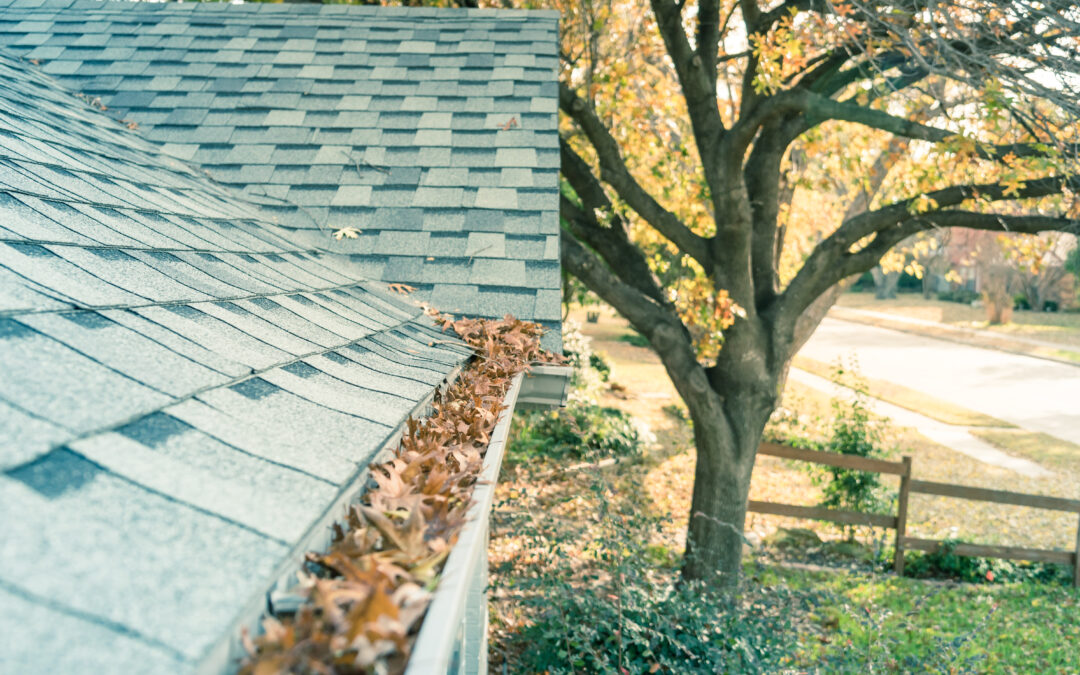As Charleston’s cooler months approach, preparing your home’s gutters is one of the smartest steps you can take to protect your property, save money, and avoid costly repairs. Charleston’s mix of winter rain, mild freezes, and late-falling leaves makes clogged gutters one of the region’s most common maintenance issues. Here are the top three reasons every homeowner should schedule professional gutter cleaning Charleston SC before winter.
1. Prevent Costly Water Damage & Foundation Problems
Clogged gutters disrupt the natural flow of water away from your home. In Charleston, heavy winter rain and sudden cold snaps can turn gutter blockages into major problems even without heavy snowfall. When leaves, pine needles, and debris collect in your gutter system, rainwater can overflow—saturating soil around your foundation, causing basement flooding, and promoting cracks or masonry damage. Over time, repeated exposure can lead to costly foundation repairs and interior moisture issues such as mold.
Routine gutter cleaning ensures water is directed safely away from your home during Charleston’s winter storms. Pro tip: Pair gutter cleaning with a roof and gutter inspection to identify damaged shingles, loose flashing, or broken gutter sections that could allow additional water infiltration.
2. Avoid Gutter Breakage, Ice Dams, and Expensive Repairs
Even in milder climates like Charleston, standing water in neglected gutters can freeze during cold snaps. Frozen debris rapidly becomes heavy, causing gutters to sag, pull away from fascia boards, or crack. Ice dams can form when melting snow refreezes at roof edges, allowing water to back up under shingles and cause leaks or rot.
Scheduling a professional gutter cleaning Charleston SC before temperatures drop helps prevent these problems—keeping your gutter system secure and functioning throughout winter.
3. Minimize Health Risks and Pest Infestations
Clogged gutters create perfect habitats for pests, mold, and bacteria—especially in Southern climates where winter days are wet and mild. Standing water and decaying organic matter invite mosquitoes, rodents, and insects, while persistent dampness encourages mold growth that can affect indoor air quality.
Cleaning gutters in the fall reduces the risk of infestations and health hazards, giving pests and spores nowhere to thrive when winter weather arrives.
Frequently Asked Questions About Gutter Cleaning Before Winter
Can gutters be cleaned in the winter in Charleston?
Yes—gutters can and should be cleaned whenever they are clogged. Ideally, schedule maintenance in the fall after most leaves have dropped and before persistent cold or rain sets in.
How often should Charleston homeowners clean their gutters?
At minimum, clean gutters twice per year—after the last leaves fall in autumn and again in spring. Homes in heavily wooded neighborhoods may require more frequent cleanings.
What are warning signs of clogged or failing gutters?
Overflowing water, visible sagging, cracked or rusted gutters, pooled water near the foundation, and streaks on exterior walls are all signs your gutters need attention.
Should I install gutter guards?
Gutter guards can reduce debris buildup and lower the frequency of cleanings, but they don’t replace the need for regular inspections—especially before winter storms.
How to Prepare Your Gutters for Charleston’s Winter
- Start with a clean slate: Remove branches, pine needles, and sediment.
- Inspect for small repairs: Tighten brackets, caulk seams, and confirm downspouts flow freely.
- Consider professional service: Experts use safe, eco‑friendly techniques and spot hidden issues DIYers often miss.
- Add gutter guards: To reduce future blockage from storms and leaf fall.
Internal Linking & SEO Notes
Link this post to relevant pages like Roof Repair, Gutter Services, and Contact/Quote pages to improve user journeys and conversions. Use descriptive ALT tags for featured images (example: “gutter cleaning Charleston SC – clogged gutter before and after”) and include the primary keyword “gutter cleaning Charleston SC” in the H1 and at least one H2 for SEO.
Recommended on‑page schema: Article schema at the page level and FAQ schema for the Q&A section to improve search visibility.

